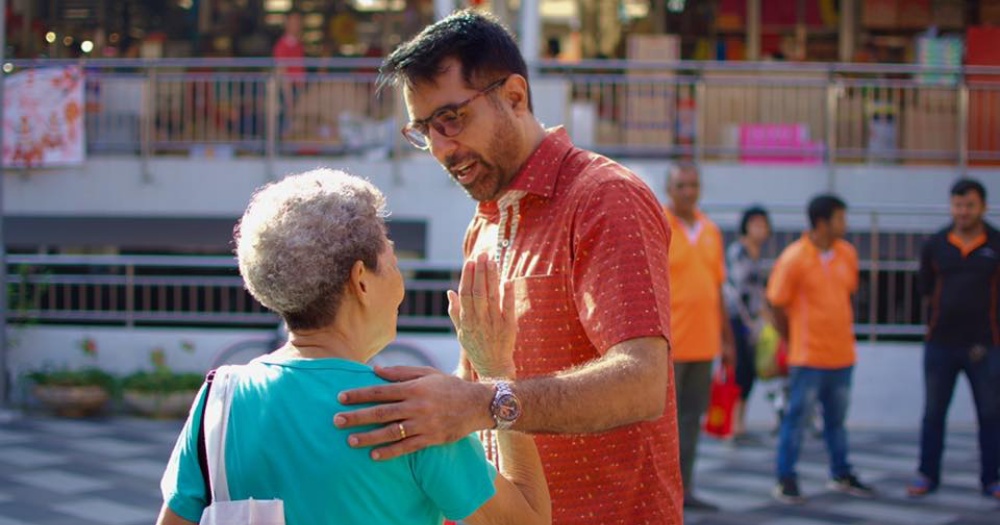Will the financial assistance measures implemented to help Singaporeans tide through Covid-19 become a new normal for Singapore?
This was the crux of Workers' Party (WP) chief Pritam Singh's question in Parliament during the Resilience Budget debate on Apr. 6, 2020.
"Through the Resilience Budget we now have a taxpayer-funded unemployment insurance, income support for low income families, food vouchers for the poor, and protection for the self employed, albeit temporary," said Pritam who went on to ask if these measures can be extended to help Singaporeans jump back from economic hardship in the longer term.
"The financial assistance measures in the Resilience Budget in the main will be effective for three to nine months. The questions I have are for the longer term.
I am of the view that this is rightly called a Resilience Budget because resilience is about being able to take a hit and recovering to continue like before. But if the pandemic is likely to take at least one year to be resolved, how long would the economic effects last? What is the government's assessment of future scenarios?"
Call for Singaporeans to man critical sectors of economy
Speaking about the long term, the Covid-19 pandemic, said Pritam, has thrown up some useful lessons to rebuild and reinvigorate our society.
For example, it has exposed certain sectors which can be manned by more Singaporean workers in future for better resilience, he said, calling for better living wages for these Singaporeans who man our critical infrastructure and provide critical services.
Singapore's "army of cleaners, both local and foreign and the local SMEs and cleaning companies" also deserve more respectable wages, said Pritam.
"I don't think many of us truly appreciate how much more work they are doing, trying to keep our HDB estates clean while continuing to clear garbage and bulky items, and keeping to their daily routines.
But that is not all. It is the respect all of us must extend to them and all those who earn an honest living that matters so much in shaping the type of progressive society, we aspire to be.
Only then can we say we are a people who leaves no one behind."
Thanked government for swift response
In his speech, Pritam took the opportunity to thank the many "workers fighting in the trenches and workers supporting the fight" including nurses, GP doctors, infectious disease specialists, and medical researchers.
Also included in his speech were civil servants, teachers, and men and women in uniform who Singapore's borders and public spaces.
"We must honour them for trying to allow Singaporeans to live our lives as normally as possible while keeping us safe," he said.
Pritam praised the government twice.
First, Pritam said that the Singapore government has responded to the Covid-19 outbreak in a timely manner.
"The Singapore government has responded in a timely manner and has sought to contain the spread of the virus locally. Its actions have mitigated and kept the situation largely under control. Years of preparation exercises and training in the healthcare realm, in particular, have borne fruit."
Second, Pritam thanked the government who "responded swiftly with financial support for its citizenry".
Questioned how the next term of government will balance the budget
Pritam asked how the next term of government is going to balance the Budget.
He wondered whether the government will need to adopt "belt-tightening austerity measures" to balance the Budget.
Moreover, he questioned whether the government will need to adopt a different stance towards the reserves, debt financing and deficits.
Pritam quipped that the public debate will be better focused on the choices before Singaporeans, on whether there will be a new social compact for Singaporeans, instead of the timing of the General Election.
In his conclusion, Pritam mentioned Foreign Minister S Rajaratnam's "Democracy of Deeds" remarks, an often cited phrase used by Deputy Prime Minister Heng Swee Keat.
Pritam said that Singapore must focus on a "Democracy of Needs" in post-Covid19 Singapore, as leaders in parliament address the "long-term needs of our people in a sustainable and equitable manner".
Top image via Pritam Singh/Facebook
If you like what you read, follow us on Facebook, Instagram, Twitter and Telegram to get the latest updates.
